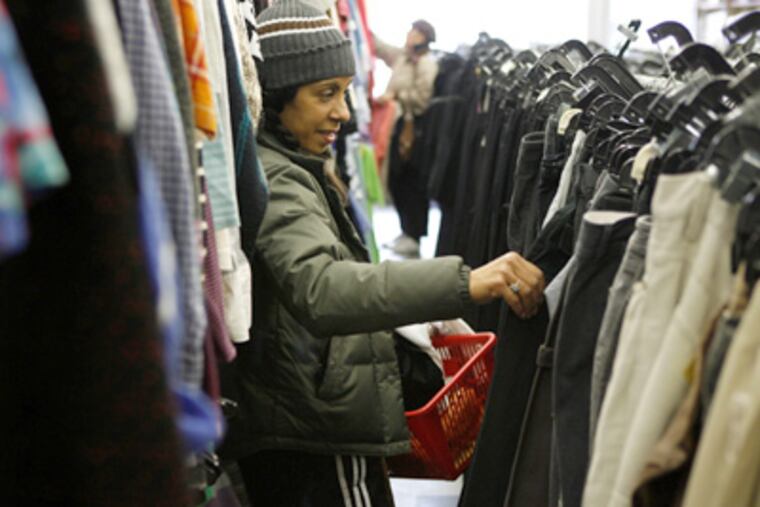The New Frugality is likely more than a fad
Fearful that economic conditions could get worse and stay that way, Americans are showing an enthusiasm for thriftiness not seen in decades.

Fearful that economic conditions could get worse and stay that way, Americans are showing an enthusiasm for thriftiness not seen in decades.
This behavioral shift isn't simply about spending less. The New Frugality emphasizes stretching every dollar. It means bypassing the fashion mall for the discount chain store, buying secondhand clothes and furniture, or trading down to store brands.
There's more business for repairmen and less for salesmen. Consumers are clipping more coupons and swiping their credit cards less.
Not long ago, yoga teacher Gisele Sanders shopped at the Nordstrom in Portland, Ore., and didn't think twice about dropping $30 for a bottle of Chianti to go with dinner. That was before her husband, a real estate agent, began to feel the brunt of slowing home sales.
Now Sanders, 53, picks up grocery-store wine at $10 or less per bottle, shops for used clothes, and plans to take her mother's advice about turning down the thermostat this winter.
"It's been a long time coming," she said. "We were so off the charts before."
That kind of scrimping may be good for stressed family budgets, but it is bad for the nation's overall economy - and that has the potential to reinforce the miserly mood. Yet with home prices, 401(k)s and job stability suffering, such frugality is likely to be more than a fad.
"It is a whole reassessment of values," said Candace Corlett, president of the consulting firm WSL Strategic Retail. "We've just been shopping until we drop and consuming and buying it all, and replenishing before things wear out. People are learning again to say, 'No, not today.' "
The trend is evident in where cash registers are ringing, and where they are not.
Wal-Mart, BJ's Wholesale Club, and Goodwill thrift shops are thriving, while Saks and Abercrombie & Fitch are struggling. Likewise, as casual-dining chains such as O'Charley's and Red Lobster see fewer customers, McDonald's is serving more, including people who have given up $4 Starbucks drinks in favor of the fast-food chain's expanding coffee menu. Even Spam has made a comeback.
The National Association for Business Economics last week projected that the overall U.S. economy, after shrinking at the annual rate of 0.5 percent in the July-to-September period, would contract at a rate of 2.6 percent in the current October-to-December quarter.
The housing bust, credit crunch, and stock market plunge have eaten away at the retirement savings and confidence of consumers who for years operated on a buy-now, pay-later ethos, chasing bigger homes, bigger cars and better brands. That is forcing families to bring their spending in line with their income and to rethink priorities.
"Everybody has been trying to keep up with the Joneses and trying to look rich when they're not," said Erin Pettingill, 24, a married mother of two preschool children in Provo, Utah, who started a blog called I Am Frugal.
"You can't necessarily have everything you want when you want it," she added. "And there's nothing wrong with that."
And even though gasoline prices have plunged below $2 a gallon from $4 in July, Ann DeRoo, a mother of three in suburban Cincinnati, said her family would continue to combine trips to save on fuel.
Timothy Duy, an economics professor at the University of Oregon, is convinced "the economy is moving away from consumerism."
Just how far remains to be seen, but a recent Pew Research Center survey found that more than half of Americans say they have cut back in the past year and about half agreed that people "should learn to live with less."